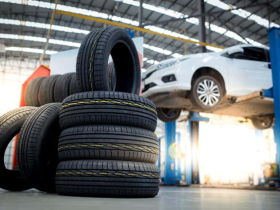The gasoline tank is crucial to any vehicle. It holds engine gasoline. A healthy fuel tank keeps the car running. Neglecting it can cause major issues. Fuel tank knowledge helps maintain a reliable car. Regular checks maintain the engine and tank. Fuel tanks are commonly overlooked when maintaining cars. This article examines how the fuel tank affects driving.
How Fuel Tanks Store Fuel
The fuel tank is a safe place to store fuel. Keeps fuel safe from leaks and pollution. Modern tanks don’t rust because they are made of strong materials. The fuel pump takes fuel from the tank and sends it to the engine. The design of the tank makes sure that the car always has enough fuel. A tank that isn’t as strong can let dirt into the petrol system. Contaminated fuel jams engines and makes them work less well. Tank inspections might help you avoid engine troubles.
Impact on Engine Efficiency
Keeping the tank clean boosts engine efficiency. Fuel that flows freely optimises engine performance. Any tank or pump restriction reduces power. Tank issues may cause slowing or hesitancy. Tank and fuel line deposits can result from low-quality fuel. Deposits damage engine parts and impair fuel efficiency. Maintenance saves money and extends engine life. Fuel tanks are built for constant supply.
Signs of Fuel Tank Damage
Leaks and odd smells indicate tank issues. Tank surface swelling or rust may indicate weakness. Car starting problems may indicate fuel delivery concerns. Fuel system noises may indicate damage or obstructions. Rust-free tanks provide clean fuel to engines. Routine professional shop checks detect issues early. Auto Repair in New Orleans, LA inspects and repairs tanks. Professionals find hidden concerns that others miss. Timely intervention prevents car accidents and costly damage.
Longevity Maintenance Tips
Fill the tank with clean fuel regularly to avoid infection. Avoid emptying the tank to avoid fuel pump stress. Check the tank for dents, cracks and wear regularly. Periodic tank cleaning eliminates sediments and extends engine life. Sealing the tank cap keeps dirt and moisture out. These practices maintain vehicle reliability.
The Tank’s Impact on Driving
Maintained gasoline tanks make driving smoother and more reliable. Engine sputtering and stalling are avoided with consistent fuel delivery. The tank’s security gives drivers confidence on extended excursions. The unexpected breakdown of a faulty tank can interrupt schedules. Fuel system maintenance prevents engine harm. Tank maintenance boosts car performance and fuel economy. Professional inspections boost safety and reliability. The vehicle operates better when all fuel system components work.
Conclusion
Vehicle functioning and safety depend on the gasoline tank. For smooth fuel distribution and engine performance, maintain the tank. Engine damage and leakage are prevented by regular inspections. Understanding tank function helps drivers prevent costly repairs. Cleaning the fuel system extends its life. Drivers enjoy smoother rides and fewer problems. Proper car maintenance preserves the investment. Every prudent car owner must maintain the gasoline tank.











